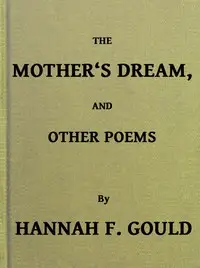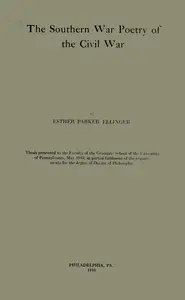"The Mother's Dream, and Other Poems" by Hannah Flagg Gould is a compilation of poems from the 1800s that covers a lot of different topics. Poems like, "Blowing Bubbles," are included and think about how quick joy can disappear, and whether humans do pointless things. Also, there is, "Infant Faith," which shows how kids honestly believe in the beauty around them and that a divine presence is looking over them; and then there's "Patty Proud," which gives an opinion on being too proud and vain, using a stuck-up girl as an example. The way the poems create images in the reader's head, plus the lessons that each teaches, encourage the audience to think over what the complexity of life means when seeing it through the eyes of a child and how much experience people have.

The Mother's Dream, and Other Poems
By Hannah Flagg Gould
In the 1800s, poems paint pictures of childhood innocence, fleeting happiness, and the pitfalls of vanity, inviting readers to contemplate life’s deeper meanings.
Summary
About the AuthorHannah Flagg Gould was a 19th-century American poet. Her father had been a soldier in the American Revolutionary War, and after her mother's death, she became his constant companion, which accounts for the patriotism of her earlier verses. Gould's poems were short, but they were frequently nearly perfect in their kind. Nearly all of them appeared originally in annuals, magazines, and other miscellanies, and their popularity was shown by the subsequent sale of several collective editions. Her work exercised a helpful influence in its day, but lacked staying qualities. The high-water mark of her verse was reached in the poem entitled "A Name in the Sand".
Hannah Flagg Gould was a 19th-century American poet. Her father had been a soldier in the American Revolutionary War, and after her mother's death, she became his constant companion, which accounts for the patriotism of her earlier verses. Gould's poems were short, but they were frequently nearly perfect in their kind. Nearly all of them appeared originally in annuals, magazines, and other miscellanies, and their popularity was shown by the subsequent sale of several collective editions. Her work exercised a helpful influence in its day, but lacked staying qualities. The high-water mark of her verse was reached in the poem entitled "A Name in the Sand".















